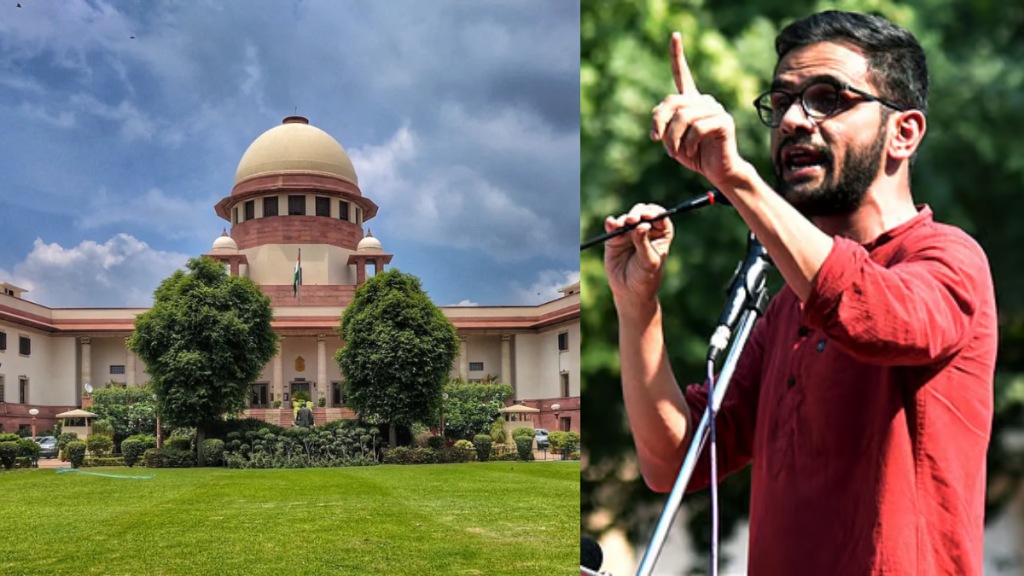The Supreme Court on Monday issued notices to Delhi police seeking its response to the bail pleas of Sharjeel Imam, Umar Khalid, Meeran Haider, and Gulfisha Fatima, who had been arrested under the ‘controversial’ Unlawful Activities Prevention Act (UAPA) as the prime accused in the 2020 Delhi riots ‘larger conspiracy case.’
A judicial bench that consisted of Justices Aravind Kumar and N.V. Anjaria on September 22nd sought some answers from Delhi Police regarding developments in the case and posted the issue for hearing on October 7.
What did Khalid’s lawyer plead?
Senior advocate Abhishek Manu Singhvi, who represented the petitioners who were initially put in detention around the peak of the Delhi riots case, pleaded with the justices to review the matter as the student activists have been languishing away in jail for the past five years.
He added that an application for interim bail had also been filed on the petitioners’ behalf. To this, the Justice Kumar-led bench remarked that the apex court will resolve the main matter soon by making sure the court proceedings move forward with the utmost speed and precision.
Senior advocate Kapil Sibal also requested the justices for an earlier date, so that the petitioners can return to their homes by Diwali. “Please (List) before Diwali, so that they can be out by Diwali. They have all been there for more than five years,” Sibal submitted to the court.
Previous developments in the case
Previously, the Delhi High Court had denied bail to multiple student activists and protestors in connection with the alleged larger conspiracy behind the 2020 Delhi riots case which resulted in the death of 53 individuals.
In an order passed on September 2, a bench of Justices Shalinder Kaur and Navin Chawla from the Delhi High court observed that based on the available evidence, prima facie, it cannot be ruled out that both Imam and Khalid played a ‘grave’ role in the larger conspiracy that culminated in widespread violence in the nation’s capital.
The Justice Shalinder Kaur-led Bench further noted that Khalid and Imam had previously delivered inflammatory speeches on February 24, 2020, coinciding with the then US President Donald Trump’s state visit, which the prosecution alleged was deliberately timed to trigger riots on February 23-24 and draw international attention.
Following the riots, the Delhi Police Special Cell led the investigation into the alleged conspiracy behind the violence. The chargesheet filed in the case relies on witness statements and evidence such as WhatsApp chats to build its case. According to the prosecution, the petitioners used code words to instruct protesters to undertake actions in furtherance of the alleged conspiracy and received funds for it.
The February 2020 Delhi riots, which broke out during protests against the Citizenship Amendment Act (CAA) and the National Register of Citizens (NRC), left 53 people dead and more than 700 injured. The matter will now be taken up by the apex court on October 7.
(With Inputs from IANS)

